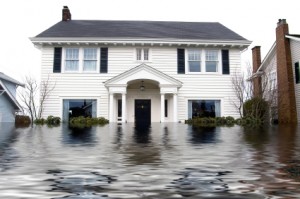Flood Insurance Long Island
Homeowners with Flood Insurance Long Island are wondering how the flood insurance affordability act will impact their Long Island property.
The U.S. Senate gave final approval Thursday to a sweeping bill designed to unravel much of a 2012 flood insurance reform law that led to soaring premiums and plunging real estate values on Long Island and other costal regions.
The measure, approved earlier by the House, eased through the Senate with a vote of 77 to 22, including support from 20 Republicans. The bill now heads to President Barack Obama, who is expected to sign it.
“Homeowners throughout the New York area can let out one big sigh of relief,” Sen. Charles Schumer (D-N.Y.) said in an interview after the vote.
The legislation would unravel key parts of a once-popular effort to save the National Flood Insurance Program from insolvency. The law, which took effect three months before superstorm Sandy, ended many of the subsidized premiums that have helped make costal homes affordable but have left the government-run insurer $24 billion in debt.
Those reforms, however, hit a backlash after Sandy. The premium increases hit as flooded homeowners struggled to rebuild. Congress, in turn, backpedaled.
Real estate lobbyists have cheered efforts to end the reforms, saying rising premiums were too much for property owners. But environmentalists and deficit hawks contend the move only prolongs reckoning with a program that they say increases national debt and encourages development in flood zones.
“Lawmakers have undone desperately needed reforms,” said Steve Ellis, of Taxpayers for Common Sense.
Private insurers don’t provide flood coverage, saying it is too risky. So the government offers it. But roughly 20 percent of the 5.5 million policies nationwide are subsidized, which has left the program in debt.
Thursday’s bill ends plans to end those subsidies. On Long Island, where roughly one-third of flood policies are subsidized, the measure’s biggest impact could be allowing homeowners to resume the practice of passing those discounts to buyers when houses are sold. The reforms ended that grandfathering system, which has hurt local home values.
To offset the cost of continuing those subsidies, the bill calls for charging policyholders an annual surcharge — a move that helped the measure draw Republican support.
Sen. Kirsten Gillibrand urged the president to sign the bill quickly as a way to help families recovering from Sandy. “Allowing an insurance rate increase would be kicking families while they are down,” she said.

